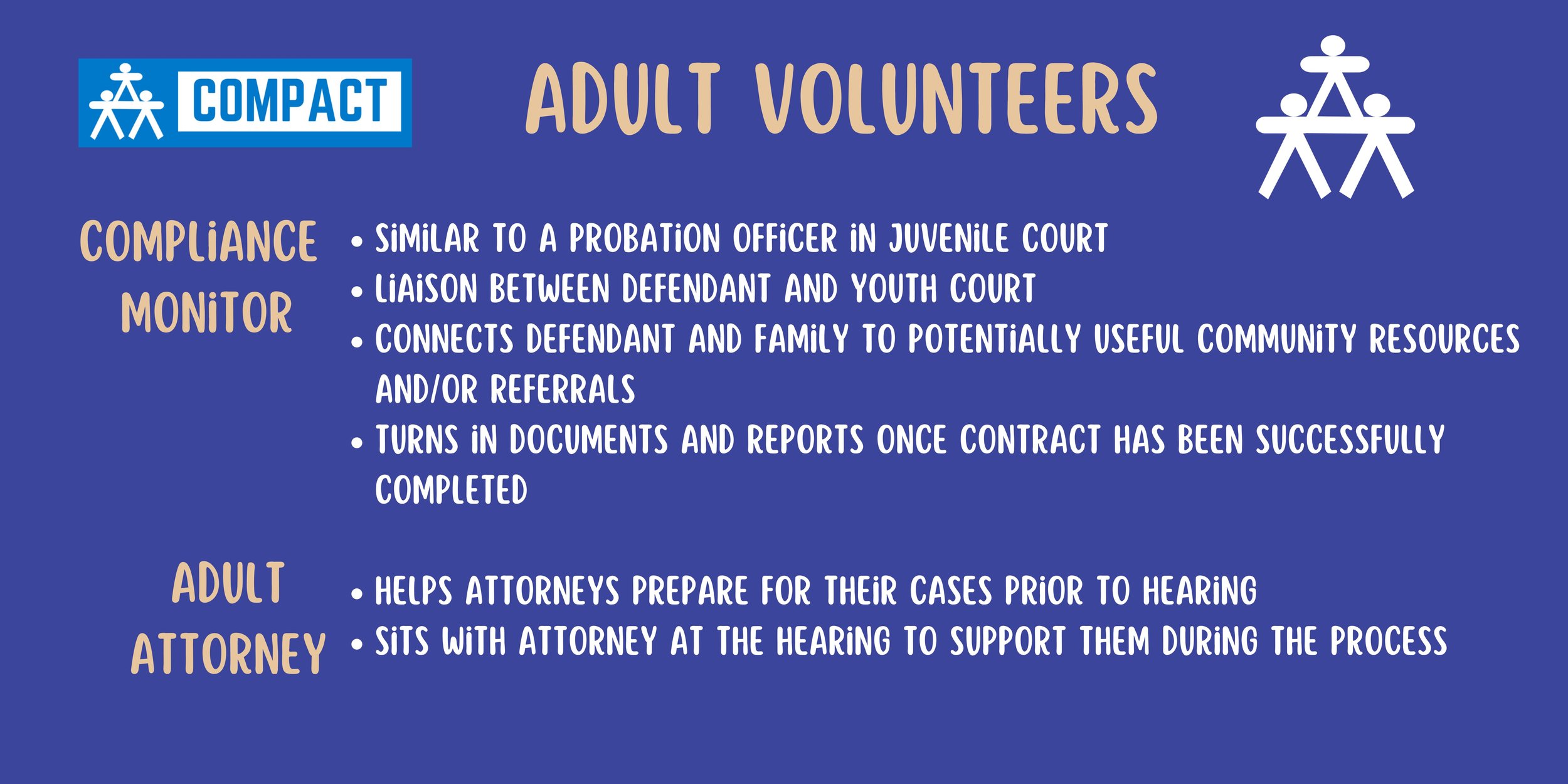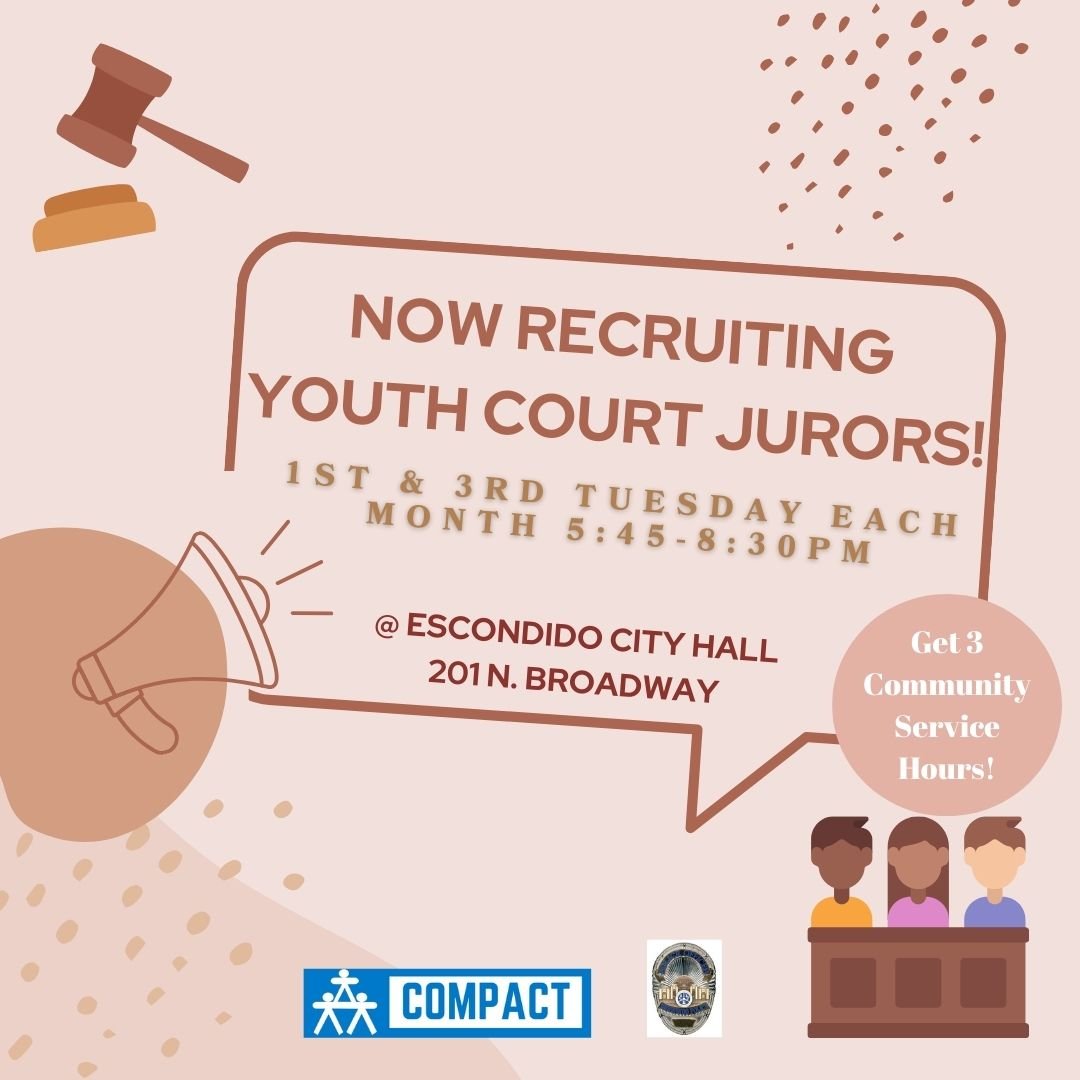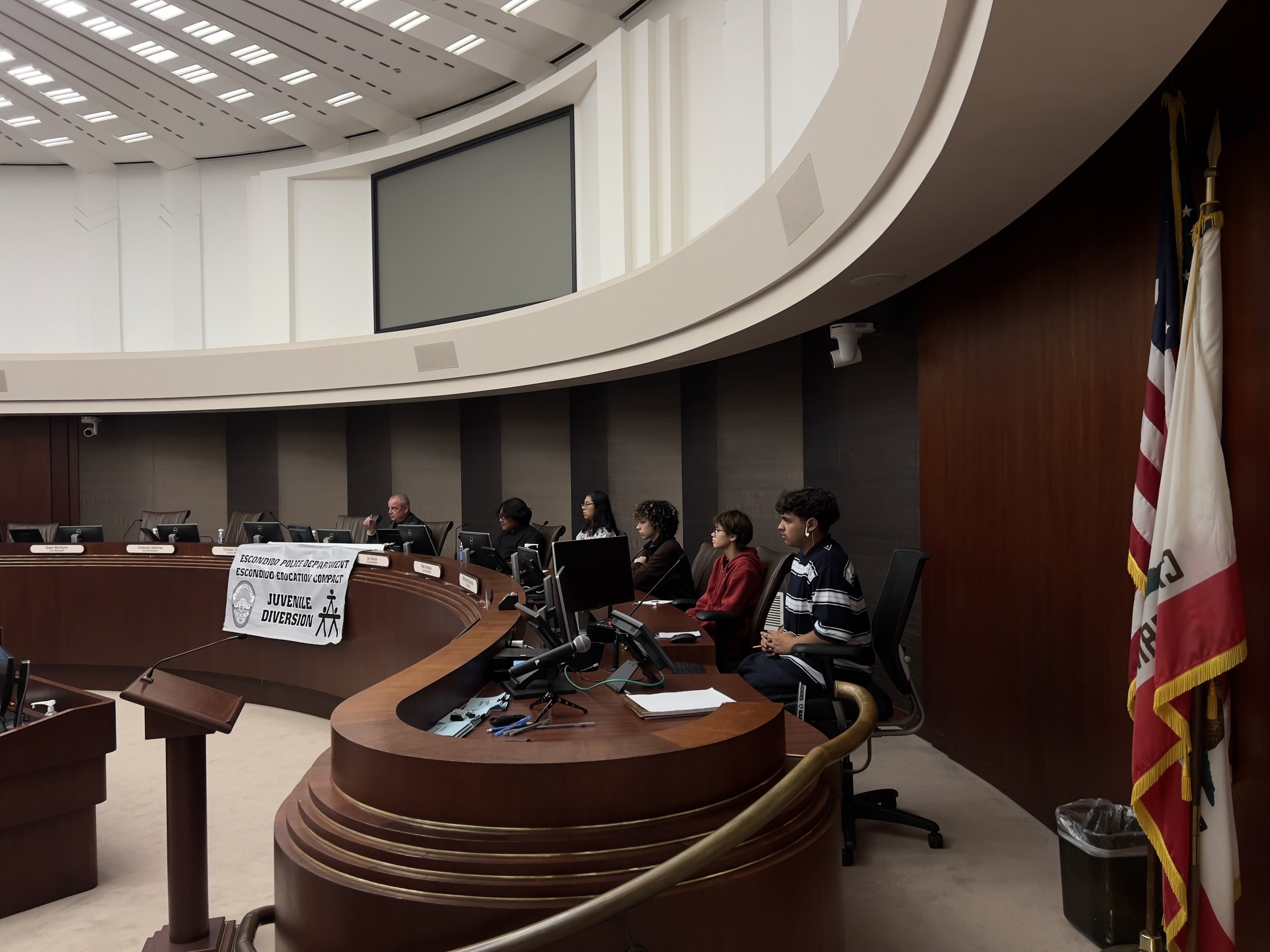
Youth Court is a diversion program that allows youth offenders to be tried and represented by their peers at their sentencing hearing. This educational process gives youth a chance to hear and speak out for each other, while learning more about the judicial system.
A program of the Escondido Police Department in collaboration with Escondido Education COMPACT


Need Community Service Hours?? Want to Volunteer??
For more information, please contact:
Youth Volunteers- Jurors and Attorneys
Jackie Bahena – Escondido Education COMPACT: (760) 839-4515
Youth-Bailiffs
Explorer Program, Escondido Police Department: (760) 839-4791
Adult Volunteers- Compliance Monitor
Mary Anne Dijak, Escondido Education COMPACT (760) 839-4515
Donations or Contributions
Patty Huerta, Escondido Education COMPACT: (760) 839-4515
or email mdijak@educationcompact.org

Defendant Paperwork can be filled out below:
How it works
Escondido Youth Court is a partnership with Escondido Police Department and Escondido Education COMPACT. Youth Court is a unique program that is not only a diversion program but also a youth leadership program. At Youth Court, the defendant is assigned an attorney and there is an attorney representing the victim. However, in this court, the attorneys are all in high school. The attorneys argue the case, just as an adult attorney would in any court. They argue their case before a jury that is also made up of high school students. The only adults involved in the process are the judge, adult attorneys who serve as advisors, and the compliance monitors. The compliance monitor serves the same role as a probation officer. However in this case compliance monitors play a more mentoring role to the youth. At the end of the hearing the youth will be sentenced. The sentence is part of the contract that they have 90 days to complete.
The Youth Court Program has proven to be very popular with high school youth looking for meaningful community service opportunities. In addition, the defendants and their parents are responding well and are grateful for the opportunity to not have the offense appear on the juvenile’s record. The court’s average age of the defendant is 15 years old; however the youngest defendant was 11. This early intervention tool is successfully linking youth with services and a mentor to help get them back on the right path.






